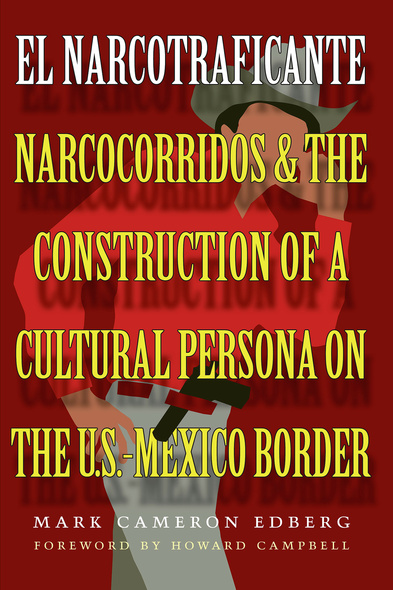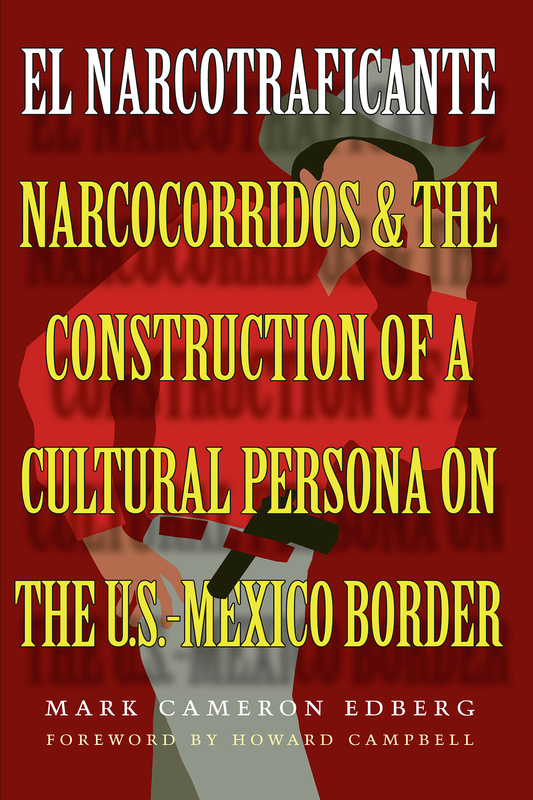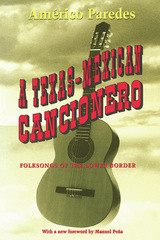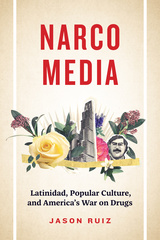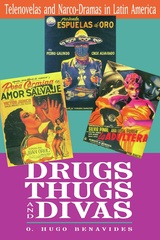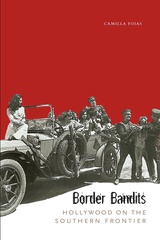Our shopping cart is currently down. To place an order, please contact our distributor, UTP Distribution, directly at utpbooks@utpress.utoronto.ca.
El Narcotraficante
Narcocorridos and the Construction of a Cultural Persona on the U.S.–Mexico Border
Since the late 1970s, a new folk hero has risen to prominence in the U.S.-Mexico border region and beyond—the narcotrafficker. Celebrated in the narcocorrido, a current form of the traditional border song known as the corrido, narcotraffickers are often portrayed as larger-than-life "social bandits" who rise from poor or marginalized backgrounds to positions of power and wealth by operating outside the law and by living a life of excess, challenging authority (whether U.S. or Mexican), and flouting all risks, including death. This image, rooted in Mexican history, has been transformed and commodified by the music industry and by the drug trafficking industry itself into a potent and highly marketable product that has a broad appeal, particularly among those experiencing poverty and power disparities. At the same time, the transformation from folk hero to marketable product raises serious questions about characterizations of narcocorridos as "narratives of resistance."
This multilayered ethnography takes a wide-ranging look at the persona of the narcotrafficker and how it has been shaped by Mexican border culture, socioeconomic and power disparities, and the transnational music industry. Mark Edberg begins by analyzing how the narcocorrido emerged from and relates to the traditional corrido and its folk hero. Then, drawing upon interviews and participant-observation with corrido listening audiences in the border zone, as well as musicians and industry producers of narcocorridos, he elucidates how the persona of the narcotrafficker has been created, commodified, and enacted, and why this character resonates so strongly with people who are excluded from traditional power structures. Finally, he takes a look at the concept of the cultural persona itself and its role as both cultural representation and model for practice.
In sum, Edberg's is a valuable contribution to an emerging, promising, and rich interdisciplinary field.
This is a brilliant study on a subject that since the 1970s has riveted national and international attention: the exploits of those men and women who traffic in drugs. . . . The work is very original and offers new theoretical paradigms for both understanding the corrido as an artistic cultural form and understanding a people through this expressive artistic form.
- Foreword by Howard Campbell
- Acknowledgments
- Prologue: Narcocorridos and the Meaning of the Drug Trafficker Image on the U.S.-Mexico Border
- 1. Corridos, Cultural Representations, and Poverty
- 2. Investigating Narcocorridos and Their Meaning in the U.S.-Mexico Border Context
- 3. Interpreting Narcocorridos
- 4. Narcocorridos and the Cultural Persona of the Narcotrafficker
- Appendix 1. Research Methodology and Sample Interview Guides
- Appendix 2. Spanish Texts of Corridos and Narcocorridos
- Notes
- References

